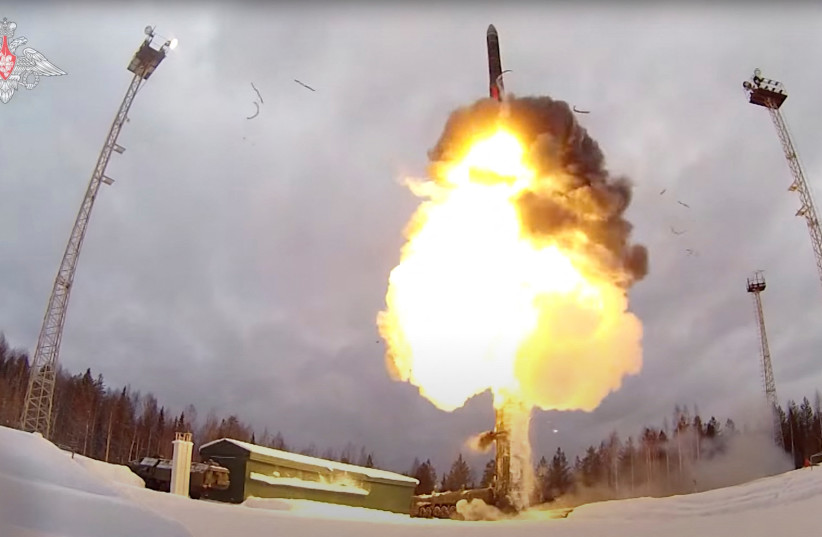It was apparently Russia’s Nicholas I who first called the Ottoman Empire “the sick man of Europe.” Throughout the 19th century and well into the 20th, the decline of the Turkish state and the struggle over its former territories was a major cause of instability across a much wider region.
Following a strange military coup in Russia in late June, and in some ways its even stranger aftermath, a realization is starting to set in that it is now the new “sick man” – or, given the feminine designation of Mother Russia – the “sick woman” on the world stage. Since it is a much larger empire, spanning 11 time zones across Europe and Asia, is heavily armed with nuclear weapons, and plays an important role in the world economy, the problems its collapse could create would be much greater.
The disintegration of the Soviet Union in 1991 was a surprisingly peaceful, bloodless event. But the USSR had fairly strong institutions which performed their assigned functions and exercised control over society. It was, above all, the Communist Party whose various branches reached into all aspects of Soviet life. The union cracked along the lines of national communist parties in the 15 constituent republics.
Soviet courts lacked independence, the security apparatus was hunting political opponents rather than criminals and national parliaments were rubber-stamp assemblies of yesmen. Nevertheless, those institutions were functioning. More than three decades later Soviet-era structures, and even personnel, are still in charge in some of the new states.
Putin's Russia

Not so in Russia. Vladimir Putin has persistently and deliberately hollowed out the imperfect legacy of Soviet institutions and destroyed the nascent democratic ones created during the 1990s – Russia’s only decade of genuine freedom.
Putin presides over what from the outside looks like a highly bureaucratized state. Government officials are pervasive at every level and even in the economy state ownership and state control of companies and businesses has almost reverted to the Soviet model, when private enterprise was forbidden.
Some five million people, or nearly 7% of the entire Russian workforce, hold jobs in security services, such as the regular police, the state security apparatus, and the Russian Guards.
Yet, public institutions themselves do not function. Or rather, they do not function properly as public institutions. They fail to perform their direct function but are used instead by their executives and officers to enrich themselves.
Budgets are routinely misused and directed into private pockets, government contracts are rigged and inflated several times over, friendly businesses are favored at the expense of their competitors, and bribery is pervasive. It goes without saying that police are on the take; but you also need to bribe school teachers and university professors, municipal employees and medical personnel, vehicle safety inspectors and fire marshals, judges, and prison officials if you want anything done. And even then there is no guarantee.
Thievery, graft, bribery, and kleptocracy are actually indispensable in the system. You simply can’t survive in Russia without getting involved in this system. And at a higher level stealing is a sign of belonging to the team and a kind of oath of loyalty. Alexey Navalny and his staff have exposed dozens of corrupt high-level officials, making public their multibillion-dollar fortunes and lavish properties – most of them outside Russia.
Well-oiled by petrodollars, the system functioned more or less well and would have continued to survive had it not received a massive jolt in the form of Putin’s misjudged invasion of Ukraine.
In the first days of the war, it became clear that the Russian army, billed as the world’s strongest after the US armed forces, was a shambles. The generals had spent the past 20 years stealing everything that was not nailed down, pocketing 14-figure budgets without either developing and buying weapons or equipping and training personnel and losing their professional qualifications as they enriched themselves.
As the war continued and other parts of Russian society and the economy came under strain, a similar situation was exposed everywhere. Russia is facing a crisis of governability. Its institutions don’t really exist in reality and a state without functioning institutions is a failed state.
The military coup mounted by Evgeny Prigozhin and his Wagner mercenary army was a demonstration of incompetence on all sides. The plotters were nincompoops and so was everyone who opposed them. The aftermath of the abortive rebellion has been just as bad, painting the picture of impending chaos.
The slow-motion disintegration of the Ottoman Empire culminated in the massive slaughter of World War I, as Russia and Austria clashed over its legacy in the Balkans and Russia lusted after the greatest prize of all, the city of Constantinople. Stripped of most of its possessions in North Africa, Europe, and the Middle East, the erstwhile “sick man” was finally nursed to relative health.
What will it take for “the sick woman of Eurasia” not to cause a worldwide nuclear conflagration and not to plunge the world economy into a recession and eventually start to recover?
The writer, a New York-based economist, is a member of the US Andrei Sakharov Foundation. From 2005-2008 he organized a support group for the Hebrew Immigrant Aid Society, bringing together Soviet Jewish immigrants in the United States.
